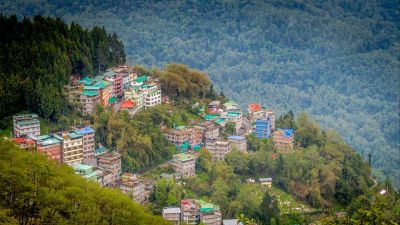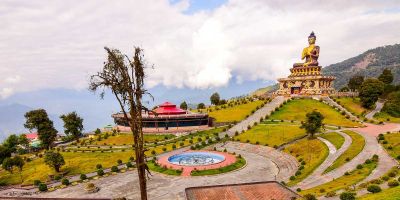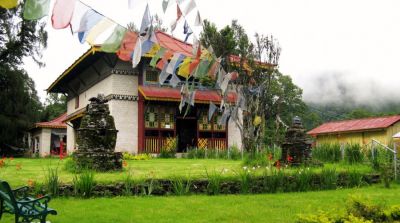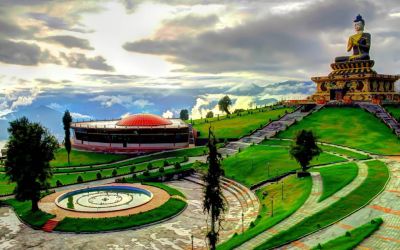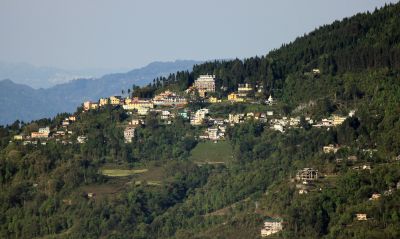Gangtok's Response to Climate Change: A Sustainable Travel Account
Gangtok's Response to Climate Change: A Sustainable Travel Account
Gangtok, the capital city of the northeastern Indian state of Sikkim, is a serene hill station nestled in the Himalayas. With its breathtaking landscapes, vibrant culture, and warm hospitality, Gangtok has long been a popular destination for travelers seeking a peaceful getaway. However, in recent years, Gangtok has also emerged as a trailblazer in its response to climate change, making it an ideal destination for eco-conscious travelers.
The Impact of Climate Change on Gangtok
Like many other places around the world, Gangtok has not been immune to the adverse effects of climate change. Rising temperatures, erratic rainfall patterns, and melting glaciers in the nearby mountains have all had a significant impact on the region's ecosystem. The fragile biodiversity, including rare orchids and diverse flora and fauna, has been under threat, and the local communities have had to adapt to the changing climate.
Gangtok's Sustainable Practices
Recognizing the urgent need to address climate change and protect its natural resources, Gangtok has taken several measures to ensure the city's sustainability. These include:
- Promotion of Renewable Energy: Gangtok has embraced renewable energy sources to reduce its dependence on fossil fuels. The city has invested in hydroelectric power plants, harnessing the energy of nearby rivers, and has also installed solar panels on several buildings to generate clean electricity.
- Waste Management: Gangtok has implemented a comprehensive waste management system that focuses on reducing, reusing, and recycling waste. The city has designated recycling centers and encourages residents and visitors to separate their waste and dispose of it responsibly.
- Water Conservation: Gangtok faces water scarcity due to changing rainfall patterns. To address this, the city has implemented rainwater harvesting systems, encouraging residents and hotels to collect rainwater for various uses. Additionally, awareness campaigns have been conducted to promote responsible water usage.
- Promotion of Organic Farming: Gangtok has embraced organic farming practices to reduce reliance on chemical fertilizers and pesticides. The city has designated areas for organic cultivation and encourages farmers to adopt sustainable techniques. This not only promotes healthier food production but also helps preserve the region's biodiversity.
- Conservation of Forests: Gangtok has a strong commitment to preserving its rich forest cover. The city has implemented strict laws against deforestation and actively promotes afforestation initiatives. It also encourages sustainable tourism practices that minimize the impact on the surrounding forests.
Eco-Friendly Accommodation and Transportation
Gangtok's efforts extend beyond sustainable practices within the city itself. Many hotels and accommodations in Gangtok have implemented eco-friendly measures such as energy-efficient lighting, rainwater harvesting, and waste management systems. Some hotels also utilize solar energy for heating and electricity.
In terms of transportation, Gangtok has been proactive in promoting eco-friendly options. The city encourages the use of electric vehicles and has introduced battery-operated buses for public transportation. Additionally, several bicycle rental services are available for tourists to explore the city and its surroundings, leaving a minimal carbon footprint.
Experiencing Gangtok's Sustainable Initiatives
Exploring Gangtok's sustainable initiatives is an enriching experience for travelers who are conscious of their carbon footprint. Visitors can participate in eco-tourism activities such as nature walks, bird watching, and guided treks, where they can learn about the local flora and fauna and the efforts to conserve them.
Additionally, tourists can visit organic farms and take part in farming activities, gaining valuable insights into sustainable agriculture practices. They can also support local artisans by purchasing handicrafts made from recycled or locally sourced materials.
Conclusion
Gangtok serves as an inspiring example of how a city can respond to the challenges posed by climate change. Through sustainable practices in energy, waste management, water conservation, and agriculture, Gangtok has shown its commitment to protecting its environment and preserving its cultural heritage.
As travelers, we have the power to support and encourage such initiatives by choosing destinations that prioritize sustainability. By visiting Gangtok and experiencing its sustainable practices firsthand, we not only contribute to the local economy but also become ambassadors for responsible travel.
So, pack your bags and embark on a journey to Gangtok – a city that not only offers stunning natural beauty but also shows us the way forward in our collective fight against climate change.
Don't forget to share this inspiring story of Gangtok's response to climate change with your friends and family!
Disclaimer : The information provided in this blog is for general informational purposes only. While we strive to keep the content accurate and updated, TravelSetu assumes no liability for errors or omissions. If you believe any part of this blog infringes your rights or causes concern, please notify us immediately at info[at]travelsetu[dot]com so that appropriate action can be taken.









